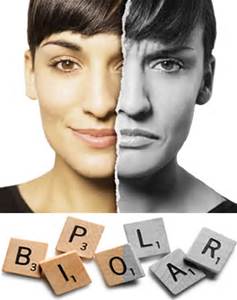
Bipolar disorder, formerly manic depression, is a mental disorder with periods of depression and periods of elevated mood.
Bipolar disorder
Manic-depressive illness is also known as bipolar disorder, it is a brain disorder that causes unusual shifts in energy, activity levels, mood to carry out day-to-day tasks.
Types of bipolar disorder;
Bipolar I Disorder: It is defined by manic episodes by manic symptoms that are so severe that the person needs immediate hospital care that last at least 7 days. Simply, depressive episodes occur as well, typically lasting at least 2 weeks. The depressions Episodes are mixed with features (having depression and manic symptoms at the same time) are also possible.
Bipolar II Disorder: It is defined by a pattern of depressive episodes and hypo manic episodes, but not the full-blown manic episodes described above.
III Cyclothymic Disorder (also called cyclothymia): It is defined by numerous periods of hypomanic symptoms as well numerous periods of depressive symptoms lasting for at least 2 years (adolescents and 1 year in children). The symptom does not meet the diagnostic requirements for a hypomanic episode and a depressive episode.
Signs and Symptoms: Extreme changes in energy sleep patterns, mood episodes and activity levels, intense emotion, agitated, irritable, or touchy feel very sad, down, empty, or hopeless.
Diagnosis:
Risk Factors:
Treatments and Therapies:
Psychotherapy:
Alternative Treatments:
Bipolar disorder, manic symptoms, manic episodes, depressive episodes
references: